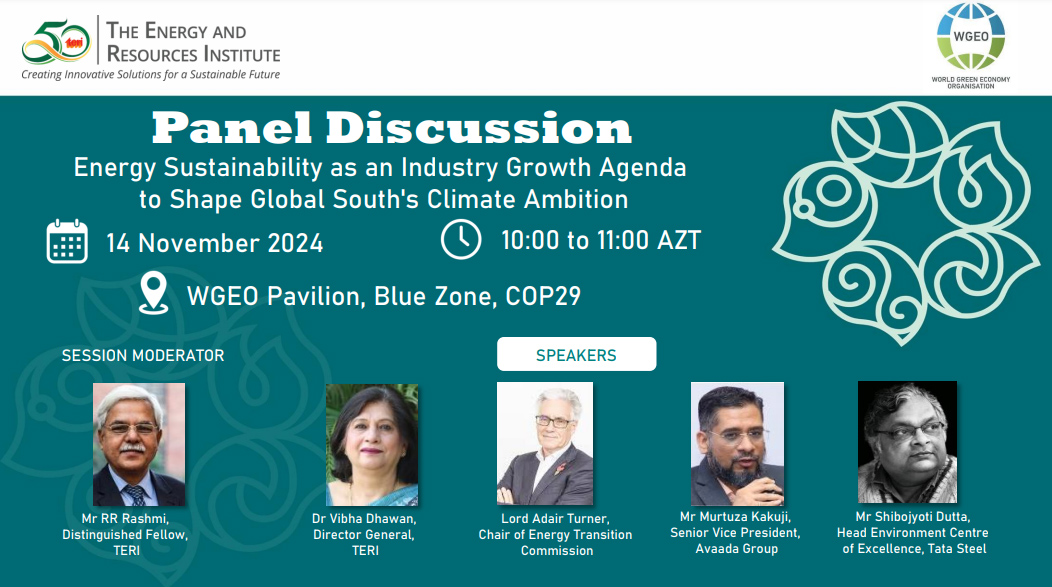Energy Sustainability as an Industry Growth Agenda to Shape Global South’s Climate Ambition

The world today is witnessing a paradigm shift on how the future will shape. Adoption of the 17 Sustainable Development Goals (SDGs), covering economic, social development, and environmental protection, provide an opportunity of forging new type of partnerships to address global challenges. One of the key challenges of sustainable development is that it demands new and innovative choices and ways of thinking. While developments in knowledge and technology contribute to economic development, they also have the potential to help resolve the risks and threats to the sustainability of social relations, environment, and economies. New knowledge and innovations in technology, management, and public policy are challenging organizations to make new choices in the way they produce and operate, and how their activities impact the earth, people, and economies.
To support this expectation, and to communicate clearly and openly about sustainability, a globally shared framework of concepts, consistent language, and metrics is required. Businesses play a vital role in understanding the opportunities and challenges on one hand, and by mobilizing resources and offering know-how and solutions, on the other. Private sector investments and market-based solutions will be needed to achieve scalable and sustained impact in many sectors, while aligning with <2°C pathways to reduce exposure to climate risks. The UN Global Goals for Sustainable Development offer a compelling growth strategy, opening up an economic prize of at least US$ 1 trillion by 2030 for the Indian private sector.
Herein, collaborative approaches assume significant importance. One such collaborative effort is illustrated by how the leading market players from Indian Industry have come together to sign an ‘Industry Charter for near zero emissions Ambition by 2050’. Under this voluntary pledge, companies have committed to pursue a set of vigorous decarbonisation measures, both at the company level and collectively, to set an example for industry peers to contribute in meeting the objectives of the Paris Agreement. The corporate climate actions to collaboratively achieve near-zero emissions by 2050 shall pave the pathway to realize the vision for India to become net-zero by 2070. This discourse of collaborative actions shall present an opportunity for the Indian businesses to unlock their full potential and integrate low carbon pathways in their operations.
TERI and World Green Economy Organization (WGEO) will jointly host a session ‘Energy Sustainability as an Industry Growth Agenda to Shape Global South’s Climate Ambition’ on November 14 (Thursday) from 10:00 – 11:00 hrs (AZT) at WGEO Pavilion, Blue Zone, COP29.
